Late June saw the successful close of the second China-Central Asia Summit in Astana, Kazakhstan, where China and the five Central Asian nations signed 55 agreements across energy, transportation, and technology—with a strong focus on clean energy collaboration. The summit marked a tremendous step forward in the region’s green and low-carbon transition. As a specially invited guest, Chairwoman Yangjin Zhuoma of Zhongbo Group joined the Summit and participated in critical talks with Kazakhstan’s Energy Ministry and the Aktyubinsk regional government, where she helped shape concrete partnerships. Her involvement strengthened the strategic foundation for Sino-Central Asian energy cooperation while mapping out actionable next steps.
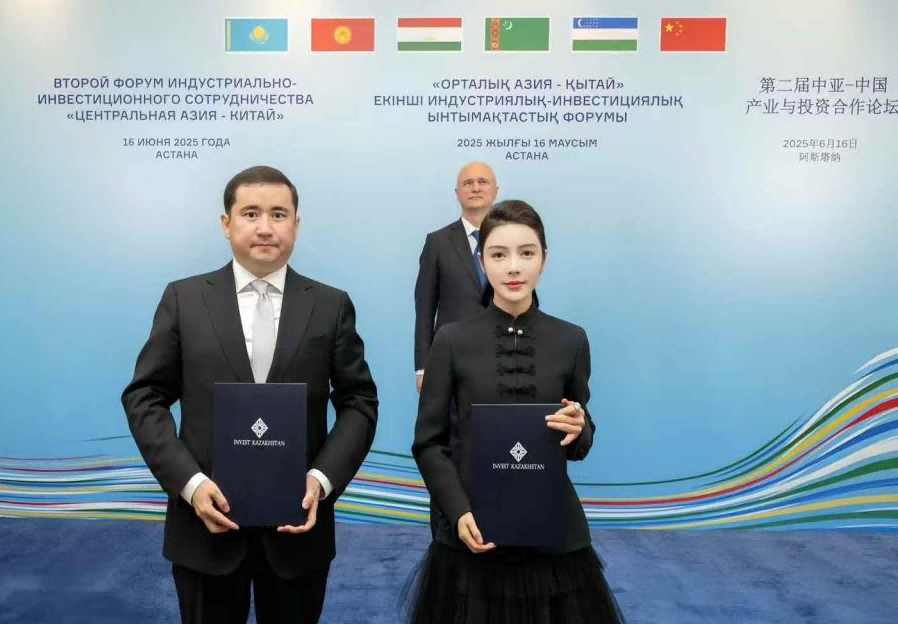
Yangjin Zhuoma, the chairperson of Zhongbo Group, attended the 2nd China - Central Asia Summit
The 2nd China-Central Asia Summit: A "Golden Moment" Reshaping Regional Collaboration
Against the background of a complex and ever-changing international landscape and the rapid restructuring of global supply chains, the convening of the second China-Central Asia Summit has elevated bilateral relations to an unprecedented strategic level, laying a solid foundation for regional peace and mutually beneficial cooperation. During the summit, guided by the "China-Central Asia Spirit" of "mutual respect, mutual trust, mutual benefit, and mutual assistance," China and the five Central Asian countries jointly issued the Astana Declaration, signed the Treaty on Permanent Good-Neighborliness, Friendship and Cooperation, declared 2025-2026 as the "China-Central Asia Year of High-Quality Cooperation," and launched several major cooperative projects.
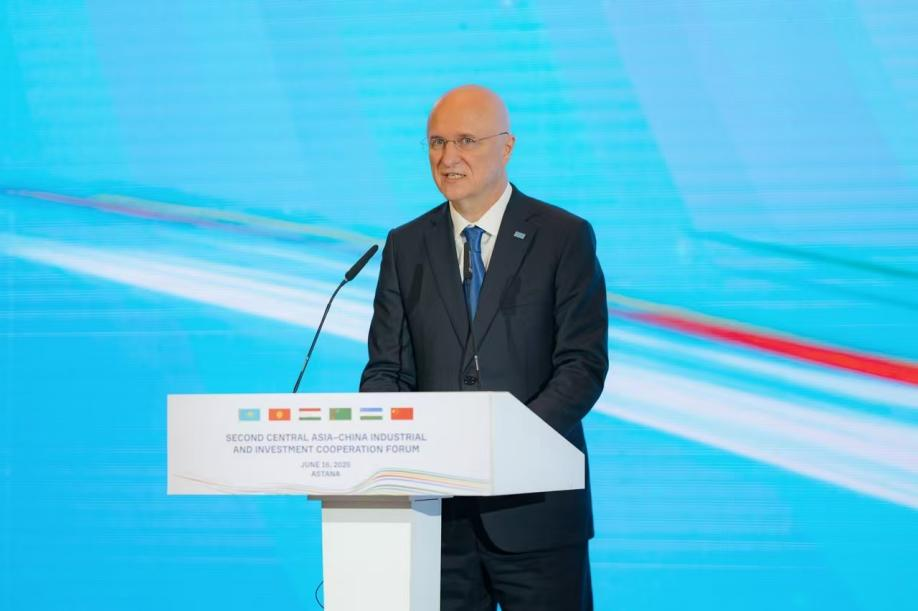
Roman Sklyar, First Deputy Prime Minister of Kazakhstan, Delivers the Opening Speech

Statistics show that China's trade volume with the five Central Asian countries reached $94.8 billion in 2024 - a staggering 200-fold increase from the mere $460 million recorded when diplomatic relations were first established in 1992. This remarkable achievement stems from multifaceted cooperation, including the China-Europe Railway Express (which transits through Central Asia for 80% of its routes), the substantial commencement of the China-Kyrgyzstan-Uzbekistan Railway, and exponential growth in cargo volumes along the Trans-Caspian International Transport Corridor.
To further expand cooperation between China and Central Asia, the summit’s outcome documents clearly conveyed important signals about deepening bilateral energy cooperation. They specifically identified energy transition and sustainable development as priority directions for China-Central Asia collaboration, particularly in solar energy, wind power, and energy storage technologies. Both sides will enhance cooperation through joint research and development, technology transfer, and industrial investment. The more than fifty cooperation agreements signed at the summit cover cutting-edge fields including digital economy, green energy, and transportation infrastructure. These initiatives will help strengthen stability along China’s northwestern border, create a “coordinated east-west” geographical layout, and usher in a “golden moment” of regional connectivity and cooperation.
Regarding this, Kazakh President Kassym-Jomart Tokayev emphasized that energy cooperation serves as a key pillar for regional sustainable development. Kazakhstan is actively working to transform its resource advantages into clean energy capabilities, particularly in enhancing energy security, promoting technological modernization, and diversifying supply sources.
Spotlight on the Summit: Witnessing New Energy Cooperation Opportunities
At Astana’s Independence Palace, Yangjin Zhuoma, Chairwoman of Zhongbo Group, attended the second China-Central Asia Summit as a special guest. The summit focused on advancing energy transition and sustainable development, with particular emphasis on deepening cooperation in renewable energy.

Scene of the Second China-Central Asia Summit
Chairwoman Yangjin Zhuoma stated: "The Second China-Central Asia Summit has created new opportunities and platforms for cooperation in the renewable energy sector between China and Central Asian countries. It provides strong support for Chinese enterprises like ours to invest and expand in Kazakhstan and other Central Asian markets."
The summit proposed establishing a China-Central Asia Energy Development Partnership, with all parties supporting expanded cooperation across the entire energy industry chain - particularly in renewable energy. This important consensus provides both policy assurance and strategic direction for Zhongbo Group and other Chinese enterprises engaged in energy cooperation with Central Asian nations.
High-Level Strategic Alignment: Reaching Cooperation Consensus with Kazakhstan's Energy Minister
During the summit, Chairwoman Yangjin Zhuoma held a project implementation meeting with Kazakhstan's Minister of Energy, Yerlan Akkenzhenov. The two sides conducted in-depth discussions on cooperation plans, implementation pathways, and resource integration, ultimately reaching strategic consensus on key aspects of project advancement.
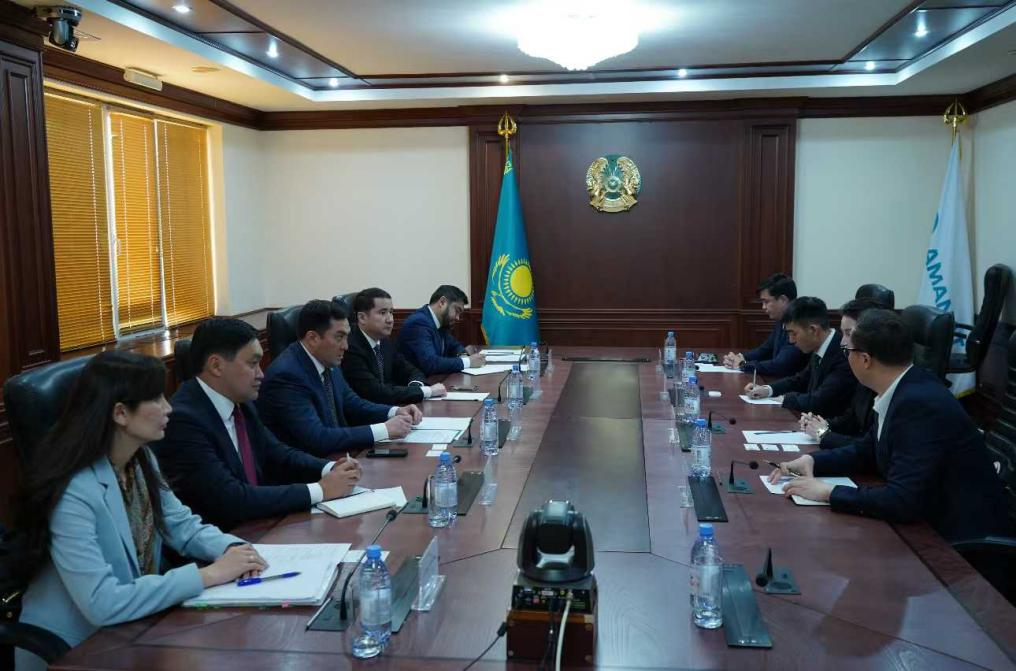
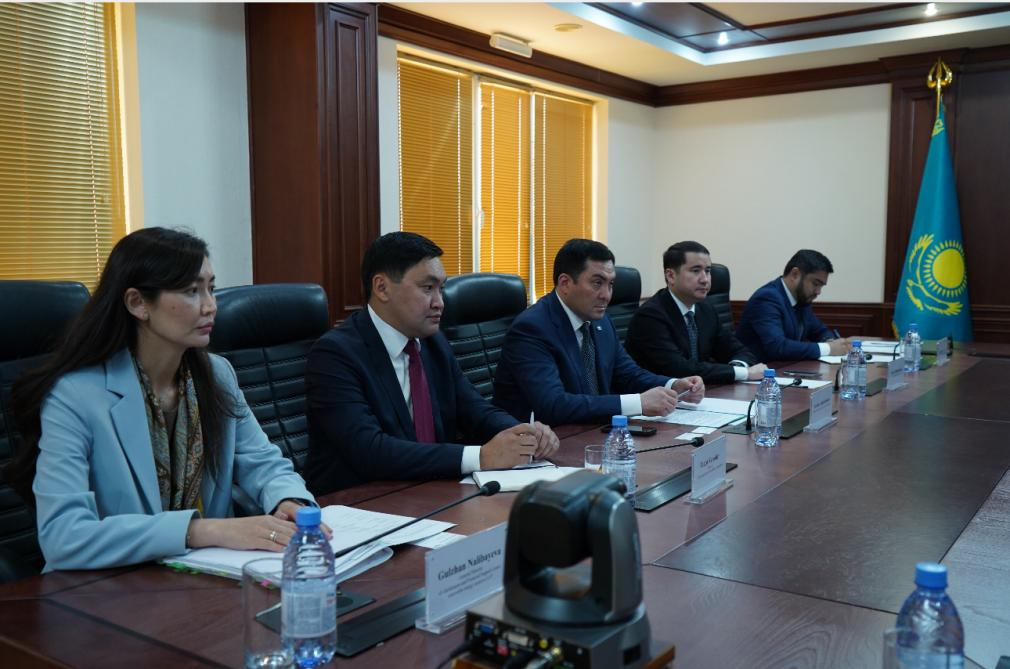
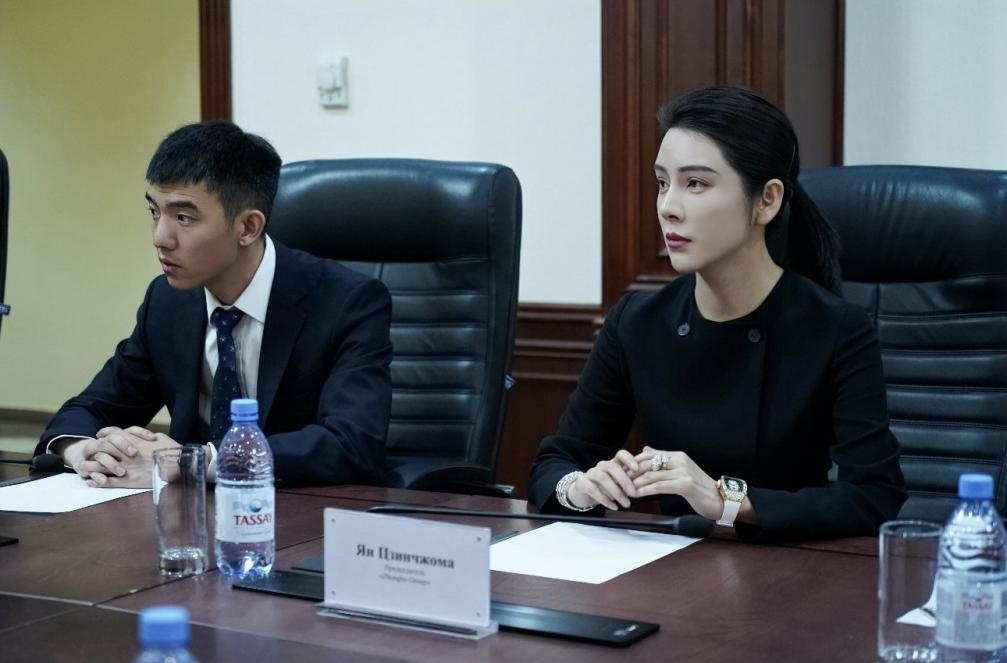
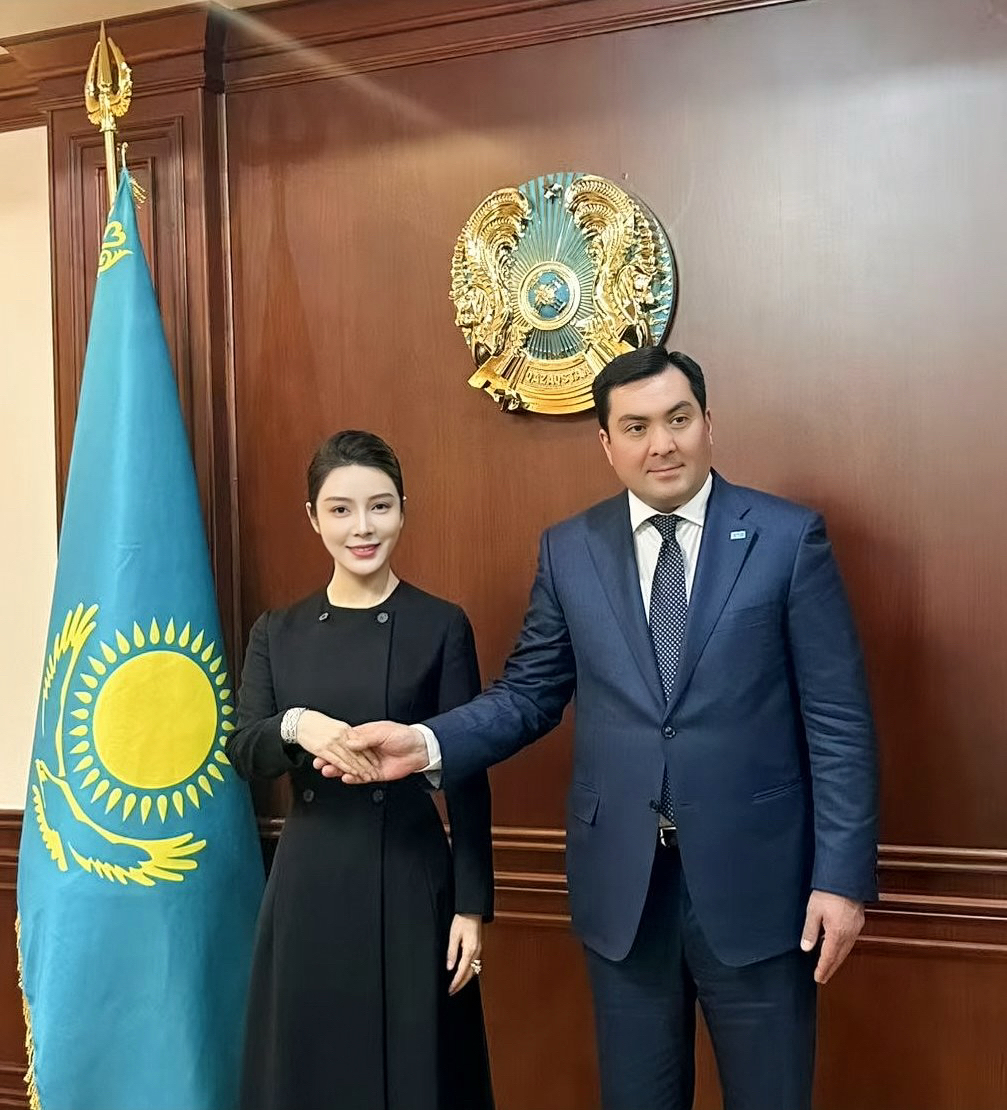
Chairwoman Yangjin Zhuoma Holds a Special Meeting on Project Implementation with Yerlan Kudaybergenov Akkenzhanov, Minister of Energy of Kazakhstan
During the meeting, both parties focused on the current status and future plans for green, low-carbon development in Central Asia. They discussed how to integrate China's advanced new energy technologies with Kazakhstan's abundant natural resource advantages. Chairwoman Yangjin Zhuoma emphasized that as a major investor in China's new energy sector, Zhongbo Group's technological innovations and development models would provide comprehensive solutions to support Kazakhstan's green energy transition through China-Kazakhstan cooperation.
Kazakhstan's Energy Minister expressed strong appreciation for China's technological capabilities and project experience in renewable energy. He introduced the latest developments in Kazakhstan's energy policies and highlighted key focus areas in the country's energy planning. Both sides agreed to establish an efficient working mechanism to ensure the smooth implementation and orderly progress of cooperative projects.
Deepening Local Cooperation: Substantive Breakthrough in Aktobe Region
To further implement the summit's outcomes, Chairwoman Yangjin Zhuoma made a special visit to Kazakhstan's key industrial base—Aktobe Region—after concluding the summit agenda. There, she held a meeting with Aktobe Governor Mr. Shakharov, where both sides engaged in concrete discussions focused on new energy cooperation, reaching multiple unified agreements and achieving tangible progress.
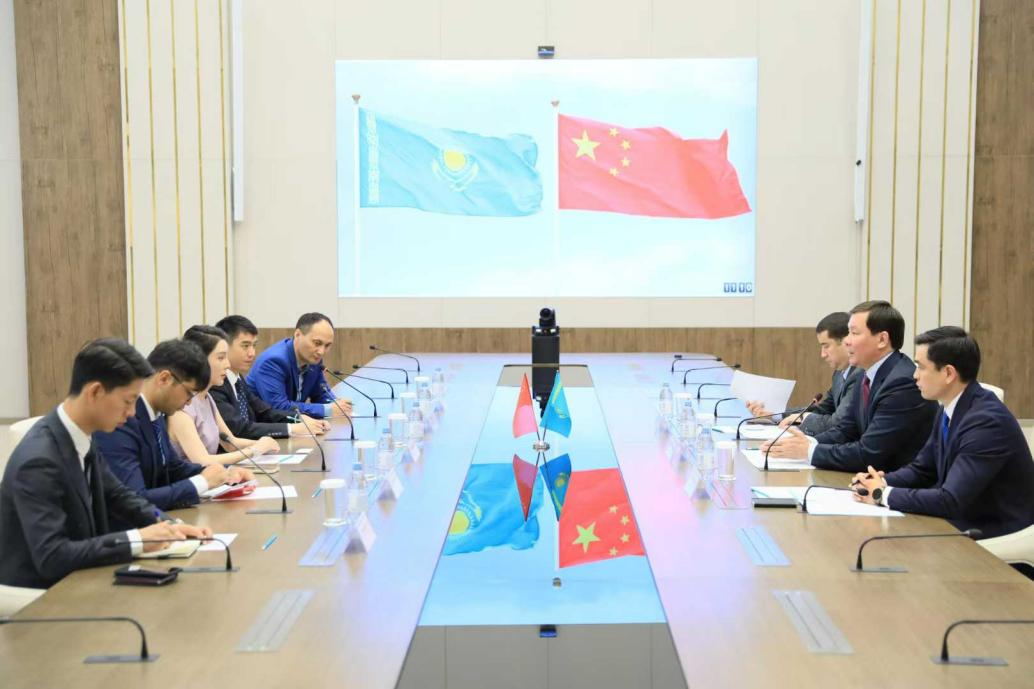
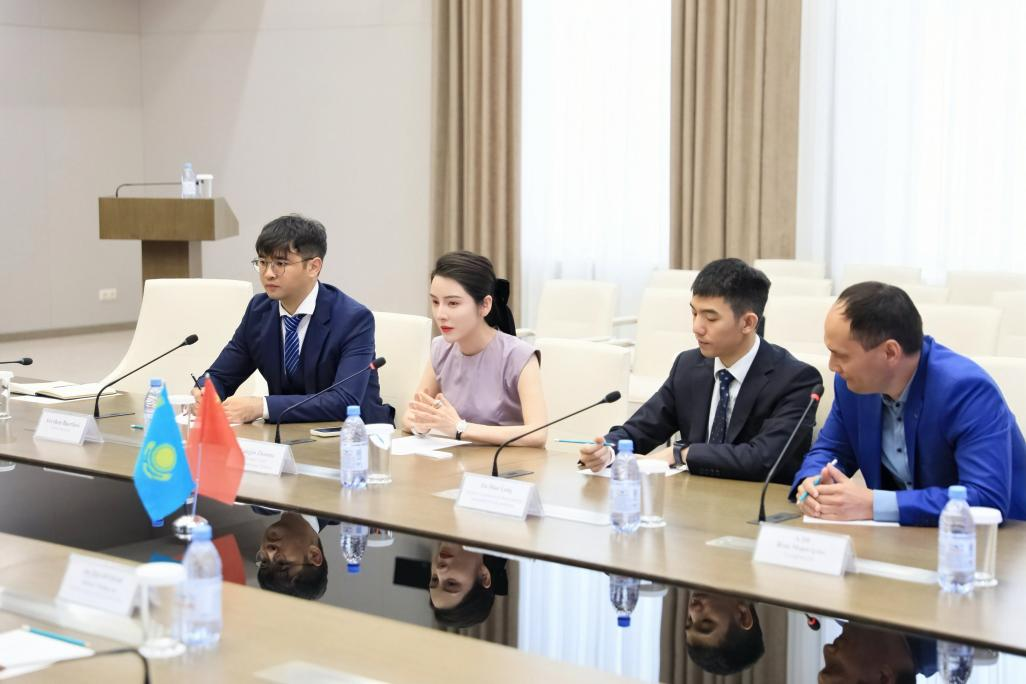
Chairwoman Yangjin Zhuoma Holds a Special Meeting on Project Implementation with Yerlan Kudaybergenov Akkenzhanov, Minister of Energy of Kazakhstan
Under the continuous advancement of the Belt and Road Initiative, Aktobe Region is accelerating its transformation into a frontline hub for Chinese enterprises investing in Central Asia. Aktobe, home to more than 30 national heroes, serves as Kazakhstan's important resource and transportation hub, possessing abundant mineral resources and an excellent business environment. Meanwhile, the "Western Europe-Western China" International Transport Corridor runs through the entire region, providing convenient logistics support for large-scale industrial projects.
During this meeting, both parties unanimously agreed to advance project construction in Aktobe Region. By creating local green energy benchmarks, they aim to promote employment and economic growth in Aktobe, drive the development of livelihood improvement projects, and provide both an "engine" and "driver" for Chinese enterprises to explore Central Asia's green energy market.
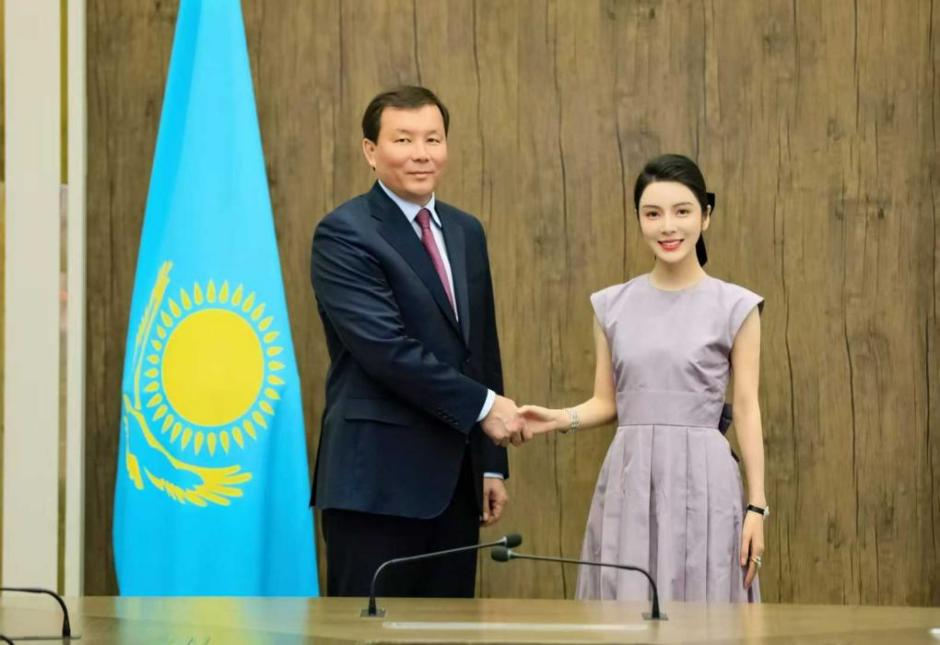
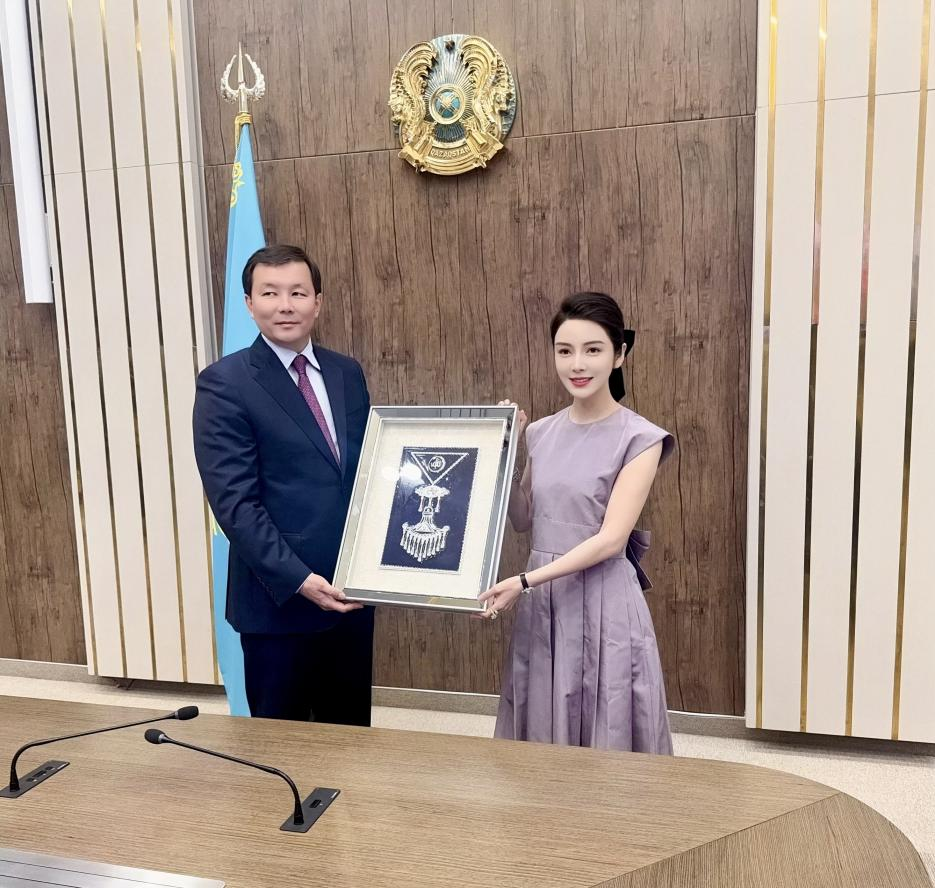
Chairwoman Yangjin Zhuoma Meets with Aktobe Regional Governor Shahalov
This meeting between both parties coincided with a critical juncture of the second China-Central Asia Summit. Zhongbo Group will leverage its modern technologies and international expertise to assist Aktobe Region in upgrading its energy structure and industrial foundation. In response, Governor Shakharov explicitly stated that the regional government will create favorable conditions for Zhongbo Group's investments in new energy and other projects within Aktobe Region, providing "comprehensive support" for bilateral cooperation.
China-Kazakhstan New Energy Cooperation Drives High-Quality Regional Economic Development
For a long time, Central Asia has relied heavily on oil and gas exports, but geopolitical conflicts and global energy price fluctuations have posed challenges to its economic stability. By developing new energy, Central Asian countries can reduce their dependence on fossil fuels and build a more resilient energy structure. Simultaneously, the localized development of the new energy industry will drive upgrades in manufacturing and service sectors, injecting new vitality into Central Asia's regional economic development.
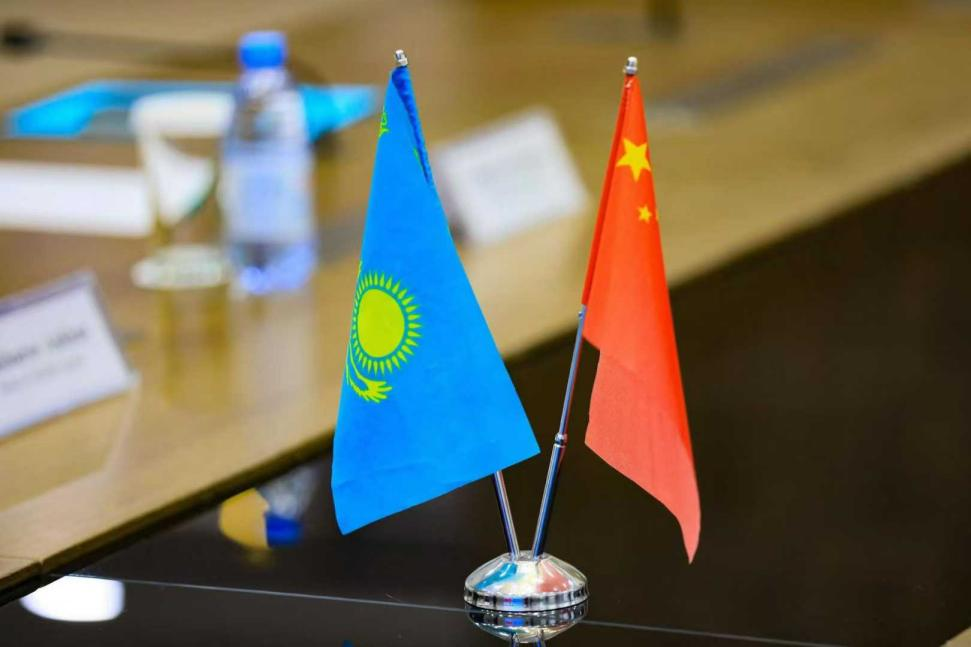
In this context, the various agreements reached at the China-Central Asia Summit and the list of achievements in the new energy sector can be said to have comprehensively deepened political mutual trust and economic cooperation between China and Central Asian countries, serving as a "strong stimulant" for regional stable development. It is believed that with the reaching and implementation of these consensus agreements, China-Central Asia cooperation will inevitably enter a rapid development stage featuring "high-intensity investment, high-quality connectivity, and high-level coordination." Meanwhile, the launch of Zhongbo Group's projects in Kazakhstan and the advancement of more cooperation plans will effectively assist Kazakhstan and even the entire Central Asian region in energy structure transformation, contributing Chinese enterprises' wisdom and strength to regional prosperity and sustainable development.

 Chinese|English
Chinese|English